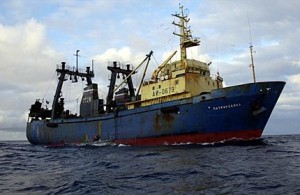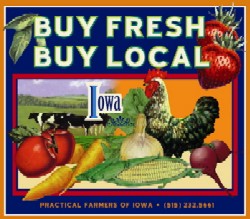Industry first for Sodexo as it secures Red Tractor certification across multiple sites

(left to right): Steve Jobson, buying director; Caroline Rofe, senior buyer; Tamsin Gane, sustainable procurement manager; Michelle Hanson, commercial director, Aidan Connolly, chief executive
Sodexo, a leading food and facilities management services provider, has today announced that it has been awarded the Red Tractor certification across multiple sites, demonstrating its widespread commitment to supplying customers with quality produce sourced from British farms.
From today, 450 sites in Sodexo’s education, healthcare and defence sectors will be providing milk and cream and fruit and vegetables that have been produced to Red Tractor standards at every critical link in the supply chain. This ensures that the products are fully traceable from field to fork. Furthermore, it means that all of Sodexo’s suppliers, processing plants and, where relevant, animal welfare, will have been independently inspected.
Sodexo has also shown evidence of complying with approved standards for food safety and responsible management of pesticides. Via its supplier, Sodexo will support British farmers by procuring over 80 listed lines of fruit and vegetables when they are in season – such as carrots, strawberries, leeks and potatoes.
The move is further evidence of Sodexo’s drive to ensure that it supports and sources sustainable and ethical produce wherever possible. Only recently, Sodexo announced that it was to expand Aspretto, its fair trade-based hot beverage offer (tea and coffee) offer, to client sites throughout the world following completion of a successful introductory pilot on 20 sites in five countries. This came in addition to the news that Sodexo has become the first school meals provider to achieve Marine Stewardship Council (MSC) accreditation across multiple school contracts in England and Wales.
Michelle Hanson, commercial director, Sodexo UK and Ireland, said: “We are delighted to be in a position to make this announcement. As part of our sustainable procurement strategy, it is incredibly important for us to support British farmers as much as possible and, via the Red Tractor scheme, we are able to provide our customers with a guarantee that their food has reached their plate from the most ethical and sustainable British sources. The work doesn’t stop here as we are currently in the process of further enhancing our sustainable procurement activities by working with a number of other partners.” David Clarke, chief executive at Assured Food Standards, the organisation that runs the Red Tractor scheme said: ‘We are delighted that Sodexo, a leading global provider of food is committed to sourcing quality farm assured fruit & vegetables and milk & cream’.
M&J Seafood wins the Sustainable Future Award
M&J Seafood were announced as the ultimate winners of the Sustainable Future Award at the Seafood Awards 2009, as the judges praised M&J for tackling the challenges of responsibly sourcing seafood, manifest not only to their business practices but their collaborative engagement at a wider level.
The judges were particularly impressed by M&J’s grass – roots commitment to sustainability, demonstrated by four of their initiatives: their Cornish albacore tuna, the British Skippers Scheme, their support of MSC certified products and their commitment to champion alternative and under-utilised species.
Mike Berthet, director of fish and seafood at M&J Seafood, who I have known for many years is a true ambassador to sustainability in foodservice and is someone who tirelessly tackles issues of huge importance to the industry.
Well Done M&J – much deserved!
Transatlantic Contrast
Although here in Britain, almost all McDonald’s restaurants use free range eggs, with a plan to be entirely free range by 2010, its American counter part has been dragging its heels on the issue.
The Chicago based firm, which uses 3bn eggs a year is exploring alternatives to battery cage eggs and is experimenting with free range varieties.
Welcomed by animal rights groups, the move is manifest to the fact that in the UK foodservice does appear to be one step ahead and more importantly that animal welfare is prominent in the public’s mind and that operators will bow to pressure.
CSR=Green?
We must distinguish CSR from Green issues and recognise that these can occasionally conflict! These two subjects every now and again blur into a grey area that is naturally assumed to be the same genre, thus causing confusion between ecological awareness and the responsibility that corporations have to reinvest a proportion of their profits in the community.
Let us, for arguments sake, untangle these intertwined issues: the corporate responsibility on issues of community/social and green topics, respectively, are separate themes motivated by different forces and impacting our world in a variety of ways. It is assumed that corporations reinvesting profits into schemes that add value to the community and the environment are indeed charitable activities and naturally all fall into the realms of a business’s footprint.
We have been researching a piece on food waste in foodservice and fine dining, in which the grey area between CSR and environmental issues is most apparent. A great deal of material addressing this issue is about giving wasted food to the homeless. An example of this is the Pret Foundation Trust, a hugely noble cause and obviously a CSR policy. Surely we should be looking at the source of the problem of food waste rather than its negation by means of a good deed within the community. Rather than justifying food waste by charitable means, could it be addressed at source?
By giving food that otherwise would be thrown in the bin to the less fortunate, it is by definition no longer ‘wasted’, and this is something we wholeheartedly encourage and promote. But the flip side is that even the very notion of giving food away in this manner could be argued to be not a ‘waste of resources’ but some form of moral justification.
Let me put this to you; could it be argued that with better portion control, more conscientious ordering processes and greater operational diligence, the produce and the products that are feeding the homeless or are simply thrown in the bin could still be growing on the ground or on a tree, roaming in fields or swimming in the sea, ready to enter the food chain in a more sustainable manner, ie when really needed?
We also set out to determine some facts about how much food is wasted at the top end of the UK’s hospitality industry. Research on this was impossible to obtain. How much, painstakingly locally sourced food, is wasted as chefs strive for picture perfect culinary presentation and quality? How much is wasted in experimentation and portion control? We can only speculate, but this problem, we feel, could be addressed by environmental means such as recycling and energy generation.
Within the realms of CSR, instead of feeding the homeless on wastage, could they be employed by trusts and charities established to employ homeless individuals to work in the processing of food? Would that not be a corporate and social responsibility victory? And on a green platform, could the food that is wasted on faulty presentation, perceived sub standard preparation or inefficient ordering have a use? Could this not be returned into the food chain at sub-human levels or even to create organic matter as fertiliser? Would that be an environmental victory?
The point is that some instances of corporate social responsibility strategies are straining parts of our natural resources and food chain. Equally, chefs sourcing local quality produce are wasting a percentage that could have a positive use in some way reinvested into the environment. These points highlight more paradox issues and demonstrate that the commonly bundled CSR and environmental issues should be distinguished and addressed separately.
Wherefore Fairtrade in Foodservice?

Further to the article ‘Half of the British Public is now familiar with Fairtrade’, this may be so, but it refers to the public’s perception of the genre and bears little relation to who’s actually buying the stuff.
Although a sizeable chunk of Fairtrade’s UK sales are in coffee, bananas are much the biggest seller, with the vast majority of the brand’s estimated £700m turnover being registered in the retail sector.
So wherefore Fairtrade in foodservice? Leaving aside coffee shops, sales are minimal outside of promotional activity periods. Price is clearly a major factor as operators seek to cut costs. Put a Fairtrade banana alongside an ‘ordinary’ banana and the only difference is its price – not in Fairtrade’s favour, I’m afraid, and a no brainer as far as the cash struck operator is concerned.
Richard Phillips gives his operating thoughts on provenance!
This article appeared in the Autumn issue of Foodservice Footrint and gives a realistic revue of hands on operational environmentally conscious actions.
Sourcing good quality local produce is hard work as you have to go out and find it – it doesn’t always come to you. It is a long process, but one which over the years has enabled me to develop very good relationships with suppliers all across my home county, Kent.
To buy locally sourced ingredients means to buy seasonally, and a natural result of that is better quality food, which tastes just as it should. Anybody interested in food will share my passion in that respect. However, I am keen to take this passion further than most by actively seeking local produce to be used in all three of my restaurants. Whilst this is paramount for the newly opened ‘Richard Phillips at Chapel Down’ in particular, I will not lower the standards of my ingredients in order to do so.
Sustainability is all about sourcing locally. As well as quality, another vital factor to consider is consistency. I need to know that my suppliers are able to keep up with demand, which has not been easy for some local suppliers in the past. However, Kent has now more produce than ever to offer. This has allowed me to serve my ‘Chapel Down’ customers potatoes from just one mile up the road, as well as fish from Rye harbour and Sussex beef. I guess if we are talking ‘food miles’ I can deliver something unique. The wine used in a large number of my dishes – from the Chapel Down vineyard on site – is sourced just yards away. Does that make it a ‘food yard’? Sourcing locally has unlimited benefits for businesses in the catering industry.
Personally, I can interact directly and easily with the farmers who supply the produce. Not long ago, my potato supplier offered to grow and develop the perfect ‘chipping’ potato for me. Whatever the produce, it is in turn, fresher than that of further afield. And as it is seasonal, it is generally cheaper. These benefits are all passed on to my customers, reflected in the quality and price of their meals. Using suppliers close by helps local businesses in their bid to develop and profit, which will ultimately improve the local economy.
Knowledge of this has encouraged me to spread my wings further in the local fields. As opposed to stopping just at food, I am keen to source other materials locally. Where we could, we used British products. The rustic atmosphere generated matches that of the restaurant’s idyllic surroundings. Sustainability and provenance are hot topics, which food, naturally, has become part of, especially given today’s rising costs. I have always been an advocate for local produce and keen to back local farmers and suppliers.
This is not about me jumping on the bandwagon of a topical issue, but instead something that I am proud to have achieved in my businesses. My encouragement of sourcing locally does not match that of other related issues.
The organic fad, for example, is just that; a fad, a trend losing support. It is important to remember that farmers nowadays use as little sprays and pesticides as possible in response to peoples’ highly publicised concerns. By using organic produce in restaurants, prices unsurprisingly have to increase. And why do that to customers when quality, local ingredients can match, if not better, the experience for them? My chefs also demonstrate this enthusiasm. Shooting on a regular basis, we are eager to test the quality of local game. Just the other week we shot over 200 pigeons in Kent, which, the following day, were on the menus of my restaurants. It is so important that my team and I have involvement right the way through from the field to the plate.
Looking to the future, I will continue my efforts in sourcing local and sustainable quality produce – I am currently spending a lot of time with my suppliers to make this happen. One goal is to have 65% of the ‘Richard Phillips at Chapel Down’ menu comprised of local produce. I am also in talks with a farm in Winchelsea about farming animals solely for my three restaurants, and ‘Winchelsea Farm Kitchen’ due to open in February 2009. Here we are planning to use a mobile abattoir so that animals are not under stress during transportation. After all, a happy animal produces tender, flavoursome meat. So, is home grown always better? Yes. When you know what you are doing. I am in no way trying to preach to other chefs. Sourcing local, quality ingredients works for me, for my businesses, and for my customers. I intend to stick to it.
Half of the British public is now familiar with Fairtrade

According to a global survey by Globescan, commissioned by Fairtrade Labelling Organisations, half of the public are now familiar of the Fairtrade Certification Mark.
The survey, which questioned 14,500 people in 15 countries including the UK, also found that nine out of ten (91%) trust the label. Some 64% of all consumers believe that Fairtrade has strict standards, a quality that also closely correlates to consumer trust. And almost three quarters of shoppers (72%) believe independent certification is the best way to verify a product’s ethical claims.
These levels of awareness and trust are consistent with people’s action, as sales indicators show more people are shopping for Fairtrade. Sales were up in 2008 (as compared with 2007) by 24% in Austria, by 40% in Denmark, by 57% in Finland, by 22% in France, by 75% in Sweden, by 43% in the UK and by 10% in the US.
Further research found that 32% of people learn about Fairtrade through family, friends and work colleagues, whilst 16% hear about it through education, community and faith groups. Broadcast and news media account for how 33% people learn about Fairtrade. People learn about new products and concepts from their own social groups and contacts – a key ripple effect for Fairtrade.
In the UK nearly half of consumers are ethically active with high expectations of corporate responsibility. The UK has the highest level of awareness with 82% of people saying they recognise the Fairtrade mark. Of these people, 94% say they trust the fairtrade mark. More than three quarters of shoppers, 77%, believe that Fairtrade has strict standards and again more than three quarters of shoppers, 77%, believe independent certification is the best way to verify a product’s ethical claims.
Estimated retail sales of Fairtrade products in the UK topped £700m in 2008.
We have often argued that the virtues of Fairtrade are ambiguous but despite this, we believe that this is a step in the right direction.
“If it is local, it must taste better”. A balanced response to an over indulged belief

Foodservice Footprint recently ran a competition in schools concerning awareness of locally sourced food. One young A-Level student, Archie Cosby, from Sherborne in Dorset emerged trumps, not only in his environmental opinions but also as a budding journalist.
“Oh but these potatoes are delicious. They come from just down the road you see”. This angle on local food is far too widespread. Why, just because it has been locally sourced, should it taste any better? I think that like organic food, the nation has overdone the whole idea that ‘local food’ is far better. It may create a community within local regions, and it may at times have less negative environmental impact, but it does not mean that it tastes better. It is an ill perceived belief that this is the case and it is something that too many chefs have become overindulged in, printing it all over menus as if it will earn them a Michelin star. This over obsession reminds me of a similar misjudgement of ingredient like that of the overly heavy use of truffle oil which they think adds to a “locally sourced” wild mushroom risotto for instance, the nutty and fragrant flavour and aroma exclusive only to an actual truffle when what it really does is just inject a vulgar, sickening taste. Anyway, why not enjoy the fruits of our labour. We spent rather a long time exploring the world, and wasteful of this hard work it would be if we weren’t to take full advantage of the pleasure existing in foods from around the world which we cannot get hold of in Britain. I do, however, concede that, opposing this view on local produce is an argument of much strength, and one that is supported by an impressive number of people. Lending their services to what has almost become a ‘movement’ in its sweeping attitudes and at times strong political arguments, is an army of – yes, I’m afraid I’m going to be highly controversial and say it – confused and aggressively passionate terriers who have become tied up in a gastronomic world of fantasy where they hope to better their own health and to establish themselves an image of supporting the local community. They have spun together this world in which they live like menacing spiders, their legs moving furiously in a motion to create their web, one which merely represents a frantic mess of false delusions. I myself realize that I too, while writing this, am weaving my own little web, one in which I am weary of becoming tired and getting stuck, except I fear not being disembodied by my hungry female counterpart. Instead, I am worried that I may find myself lying under a thick bush of nettles, with rather a hard pillow of gravel and tarmac, not thinking about making nettle soup for supper, but instead worrying more about the tire marks running across my stomach. Of course, I am eager to avoid being brutally disposed of by an over sized 4×4 on its way to the local farm shop, but I do also, to an extent, sympathise with these ‘terriers’. While I do argue that, just because it’s a potato that was grown 5 miles away, it doesn’t mean that it is any tastier, I do think it is crucial that we support our country’s agriculture. We do, after all, owe a lot to our fields. We are all familiar with that famous slogan, “Dig for Victory”, and, although we had little other choice but to grow our own vegetables in such a way during the Second World War, it was the importance of growing our own produce which was so enthusiastically embraced that was, many argue, a decisive factor in the Allies’ victory in 1945. So if not just as a patriotic salute to those wartime veg growers but also to our own farmers of today, I suppose we ought to at least consider the impact that food sourced from distant locations has on the environment. We are a country gripped by the issue of global warming, and, unlike organic food, and to a degree, ‘local food’, this is not just a chic fashion. Instead, unfortunately, it is rather more serious than such. Tony Blair was, it is only fair to say, speaking some sense when, in 2008 he encouraged the nation to “Just Ask” where the food that they were buying at supermarkets came from. Backed by Britain’s Country Land and Business Association, this campaign endorsed by Mr Blair aimed to heighten the amount of British produce being purchased by the public. For this to work, the hope was subsequently that the public would opt more regularly for the cut of gammon steak produced by British farmers, their pigs reared on the grassy moors of Gloucester. The man who introduced this scheme was, however, also the same man who planned to have all British soldiers out of Iraq by 2007. We are also, after all, British and however proud we are of our own produce, we are a nation who have been described on more than one occasion it has to be said, be it by our Gallic enemies from across the channel, as one that doesn’t ‘do’ food. This mockery is beginning to cease, and so it should be what with the outstanding advances which food has experienced in this country. The last 20 years has seen something of a revolution in Britain’s restaurants and we are now beginning to establish ourselves as a country that would confidently challenge any other in the kitchen. And, with gastronought Heston Blumenthal, whose restaurant, The Fat Duck was named the Best Restaurant in the World as ranked by an international panel of 500 culinary experts, why on earth should we not strive to compete for the culinary crown so arrogantly assumed ownership of by the French. Fine, they may have produced the likes of Herve This, August Escoffier- ‘the king of chefs and the chef of kings’, and Joel Robuchon – widely considered as the greatest of all French chefs, but we in England, in a small village called Bray have taken their prized snail and have converted it into a snail porridge. The magnificence of this dish is in its deliberately bizarre and unappealing name as it becomes triumphed and conquered by the experience of eating it. I am aware that I’m ranting. I am only an Englishmen who is eager to boast about, and to support, the food of this country. So too are nearly all of us. But it is just more costly to do so as we now find ourselves swamped by the collapse of our economy. As much as we would like to buy that cut of Gammon reared in the English midlands, our wallets simply point us instead, as shameful as it is, to that lump of ‘meat’, the label which says ‘Gammon’ merely disguising the contents of China’s bins in its clear up of Beijing in preparation for the 2008 Olympics, bins from which barks could not too long ago be heard and paws seen poking out of the top. The point is, therefore, that it is just too expensive for many to support locally sourced food even if they would ideally like to.
Archie’s article will also be published in the up and coming edition of the Foodservice Footprint journal. Well done Archie, box of organic vegetable sourced from North Dorset coming your way. We look forward to hearing more from you!
How local is LOCAL? And who really means it?
Read this very interesting blog published on The Guardian’s site yesterday. It reflects our views at FF entirely and underlines what we have been arguing for years.
Although it is retail focused, I feel the same applies to much of the foodservice industry. Even those with sophisticated green mandates and CSR policies seem to take localism very seriously from a marketing point of view but how local is LOCAL? We are clearly abusing the word local as merely being from ‘Britain’ is simply not true to the definition of the word.
Manifest to the, shall we say, flakeyness of Corporate ecological consciousness was an article published in The Times on the 12th of April stating that firms have moved away from Carbon Off-Setting as a result of the recession:
http://www.timesonline.co.uk/tol/news/environment/article6078141.ece
This, once the scheme to be involved in, has proven somewhat fickle, it seems. One thing, I would argue is happening is that the men are starting to emerge from the boys! Who is really serious about making a difference!





